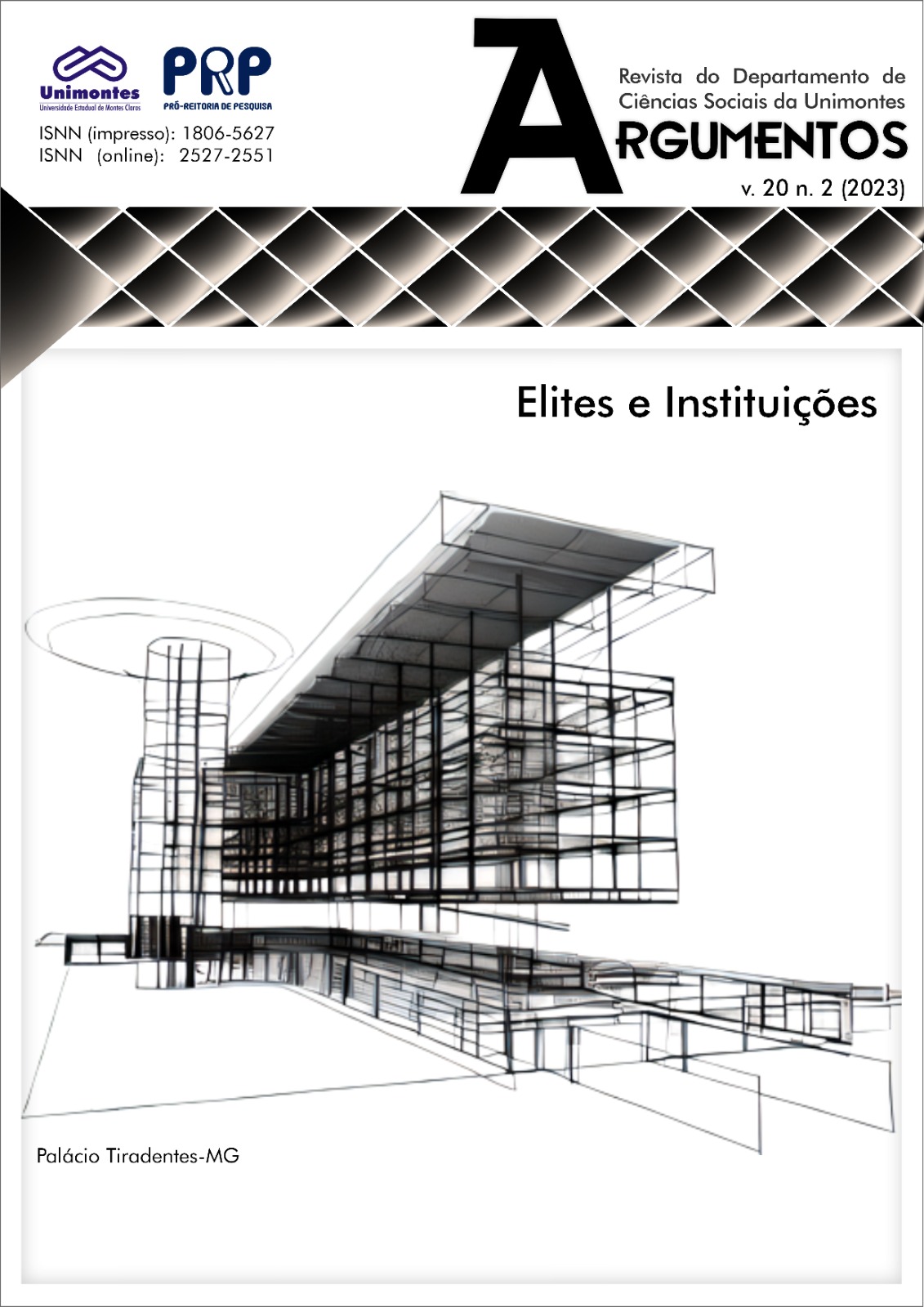An analysis of the Doctrine of Fascism and its contribution to understanding Mussolini's movement
DOI:
10.46551/issn.2527-2551v20n2p.210-233Keywords:
Benito Mussolini, Fascismo, Doutrina do Fascismo, vintênio, ciclo ditatorial do FascismoAbstract
Of the many discursive materials created by Mussolini in the Fascist vintenium, few are as rich as the 1932 Doctrine. Published at a time when the regime was seeking to institutionalize and “normalize”, the material is fundamental to the historiography of Fascism for revealing how Mussolini saw his own movement/ideology/regime. This article will offer a content analysis of this material, with the intention of apprehending the main elements that constitute it and their differences or similarities in relation to other moments of Fascism. With the help of Robert Paxton's theory, it will be possible to contribute to the historiography of Fascism, by illuminating the idiosyncrasies of the Doctrine, showing how much the movement/regime has changed over the years ― which makes it difficult to speak in a Fascism with frozen features. In short, to understand what Fascism said about itself, and how much this dialogued with Mussolini’s practice.
Downloads
References
ADORNO, Theodor W. et al. Estudos sobre a personalidade autoritária. São Paulo: Editora Unesp, 2019.
ALBRIGHT, Madeleine. Fascismo: um alerta. São Paulo: Planeta, 2018.
ARENDT, Hannah. As origens do totalitarismo: totalitarismo, o paroxismo do poder. Rio de Janeiro: Editora Documentário, 1978.
BERTONHA, João F. Coerção, consenso e resistência num Estado autoritário. Diálogos. V. 12, n. 1, p. 141-163, 2008.
BURKE, Edmund. Reflexões sobre a Revolução em França. Brasília: Editora Universidade de Brasília, 1982.
BUZZATI, Dino. O deserto dos Tártaros. Rio de Janeiro: Nova Fronteira, 2017.
DELEUZE, Gilles; GUATTARI, Félix. Mil platôs: capitalismo e esquizofrenia. 3 ed. Tradução de Aurélio Guerra Neto, Ana Lúcia de Oliveira, Lúcia Cláudia Leão e Suely Rolnik. Rio de Janeiro: Ed. 34, 1996.
ECO, Umberto. O Fascismo eterno. Rio de Janeiro: Record, 2018.
FORSYTH, Douglas. The crisis of liberal Italy. Cambridge: Cambridge University Press, 1993.
GERSCHEWSKI, J. The three pillars of stability: legitimation, repression and co-optation in autocratic regimes. Democratization, v. 20, n. 01, p. 13-38, 2013.
HIRSCHMAN, Albert O. A retórica da intransigência: perversidade, futilidade e ameaça. São Paulo: Companhia das Letras, 2019.
MAISTRE, Joseph de. Considerations on France. London: McGill-Queen’s University Press, 1974.
MUSSOLINI, Benito. My autobiography: with “The political and social doctrine of Fascism”. New York: Dover Publications, 2006.
NIETZSCHE, Friedrich. A vontade de poder. Rio de Janeiro: Contraponto, 2008.
PACHUKANIS, Evguiéni. Fascismo. São Paulo: Boitempo, 2020.
PAXTON, Robert. A anatomia do Fascismo. São Paulo: Paz e Terra, 2007.
______. The five stages of fascism. The Journal of Modern History. Chicago, Chicago University Press, v. 70, n. 01, 1998, p. 01-23. Disponível em: https://www.journals.uchicago.edu/doi/10.1086/235001. Acesso em 06 nov. 2021. Doi: https://doi.org/10.1086/235001.
POLANYI, Karl. A grande transformação: as origens de nossa época. Rio de Janeiro: Editora Campus, 2021.
STENDHAL. O vermelho e o negro. São Paulo: Cosac & Naify, 2010.







.png)










.png)





